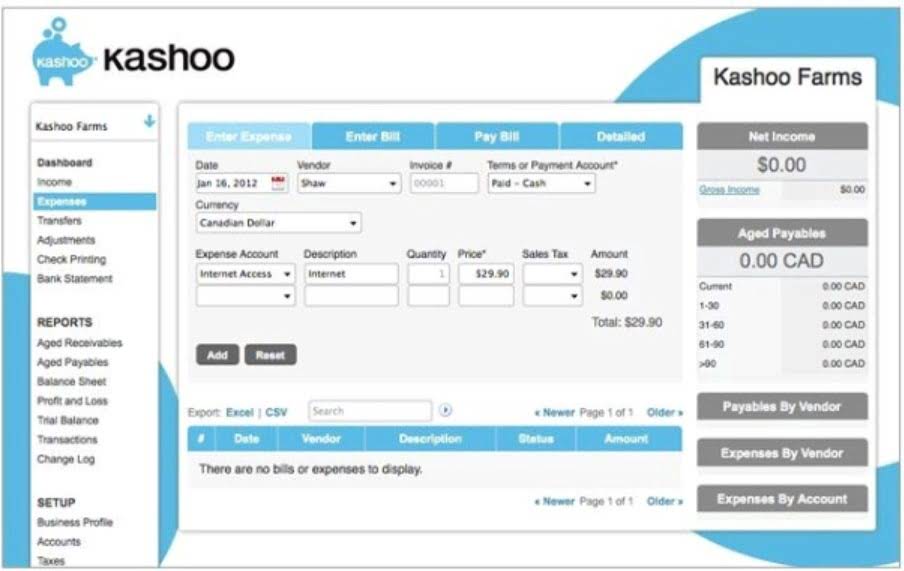
Fund accounting is a specialized accounting system used by nonprofit organizations to track and report on funds based on donor restrictions. It demands a thorough grasp fund accounting basics, ensuring every dollar is accounted for and spent in alignment with donor preferences. Non-profits may find that investing in accounting software specifically designed for grant management is a strategic move that fosters accountability and transparency. It optimizes grant-related financial management and supports their mission by allocating more time towards programmatic initiatives rather than manual accounting processes. Nonprofit organizations must adhere to strict accounting practices for grant management. Effective financial management encompasses establishing robust internal controls and meticulously budgeting for grants to ensure compliance with the stipulations set by resource providers.

Related Publications

As a result, nonprofit organizations use fund accounting to show donors how the organization spends donor money on programs, fundraising, and administrative costs. In addition, nonprofits manage revenue using GAAP, or Generally Accepted Accounting Principles, created by the Financial Accounting Standards Board (FASB). Nonprofits use fund accounting to segregate their financial activities into different funds, each with its own set of financial statements. Fund segregation helps organizations manage and report on specific activities or programs.

How does fund accounting differ from regular accounting?
Grants are generally restricted to a specific purpose, program, and/or time period, meaning they come “with donor restriction” and must be tracked as such in the accounting. These donor restrictions will be explained in the gift instrument, or award letter, that accompanies the grant and specifies how the funds must be used. While grant management also involves tracking the progress of the initiative you’re using the funding for, it’s important to understand the financial aspect of the process in order to do it properly. Use the tips above to get started, and reach out to your nonprofit’s bookkeeper or accountant if you need help or have questions along the way. Accurately reporting your grants is critical for maintaining compliance with funders’ requirements and government regulations for nonprofits.
How to record the expenses that use the funds from the grant?
For Interim Reporting periods, organizations are required to produce financial statements to give donors and boards a timely view of their fiscal health. For conditional grants, revenue recognition hinges on meeting the specific conditions outlined. Non-profits record these as deferred revenue on the balance sheet until conditions are satisfied. Exchange Transactions refer to reciprocal transactions where the nonprofit organization provides goods or services of approximately equal value to the donor or grantor. This type of transaction is often handled like a standard commercial transaction, with revenue recognition occurring as goods are delivered or services are performed. Best practices in grant management range from cash management and accounting controls to records retention and reviewing the ROI of each grant and the entire program.
- Furthermore, unrestricted funds can be used to cover operating expenses, as well as for major capital expenditures, giving organizations the freedom to decide how best to use the money.
- Therefore, embracing data analytics in grant management is key to achieving operational efficiency and better financial outcomes.
- By partnering with Rooled and availing our CFO services, you gain a trusted ally in your quest to access the right grants and fuel your mission.
- The funding organization typically will notify the other grant applicants and let them know their proposals were not accepted.
- Having an independent audit team review your records related to the grant can help protect your organization from any unforeseen problems.
Related Company Profiles
The term “fund” describes the pool of money and not a specific account or bank account. If that’s the case, the funds should be moved to the temporarily restricted fund. Once you have viewed this piece of content, to ensure you can access the content most relevant to you, please confirm your territory. He works with our development team to make changes and enhancements to the software. Alex loves to break down IT and financial concepts to make them easy to understand and to apply to real-life situations.
What is a Grant Management System? A Comprehensive Guide

For multi-year grants, it’s essential to recognize the grant income over the periods to which it pertains. To ensure that all your accounts are balanced and accurate, and that all your grant money is accounted for properly, nonprofit fund accounting software is highly recommended. Aplos Software was designed for nonprofits and their unique accounting needs. Nonprofits are required to use the accounting standards set by the FASB (Financial Accounting Standards Board), and Aplos has them built in to its cloud-based software.
Nonprofit Fund Accounting: The Complexity of Donor Restrictions
Technology, particularly artificial intelligence, can provide some relief, handling busy work that newbie accountants might have previously done, including data entry and routine financial reviews. That frees up manpower for more interesting work, including faster growing business advisory services. As the chart below shows, five of the largest 25 U.S. accounting firms, ranked by revenue, have taken private equity money. By putting your accounting needs in the hands of fund accounting experts, your organization will ensure you meet all of the Generally Accepted Accounting Principles (GAAP) and FASB requirements. Fund accounting helps government entities keep accurate and tight control over their financial information, with a particular focus on the remaining resources.
IASB issues amendment to IFRS 1 regarding government loans
Get our FREE guide to nonprofit financial reports, featuring illustrations, annotations, and insights to help you better understand your organization’s finances. Get our FREE GUIDE to nonprofit financial reports, featuring what is grant accounting illustrations, annotations, and insights to help you better understand your organization’s finances. Explore comprehensive funding strategies for nonprofits with a focus on efficiency using Instrumentl to find grants.
- Grant accounting is essential because it directly impacts an organization’s financial health and sustainability.
- Contributions, on the other hand, are nonreciprocal transactions where the donor provides assets without directly receiving equivalent value in return.
- Accounting software plays a critical role in grant accounting by providing tools to track and report on grants with precision.
- Donor management capabilities easily track donor information, preferences, and restrictions.
- In order to successfully meet these demands, the grantee must maintain a very detailed level of attention, a broad understanding of grant policy, and an effective fund accounting and tracking system.
